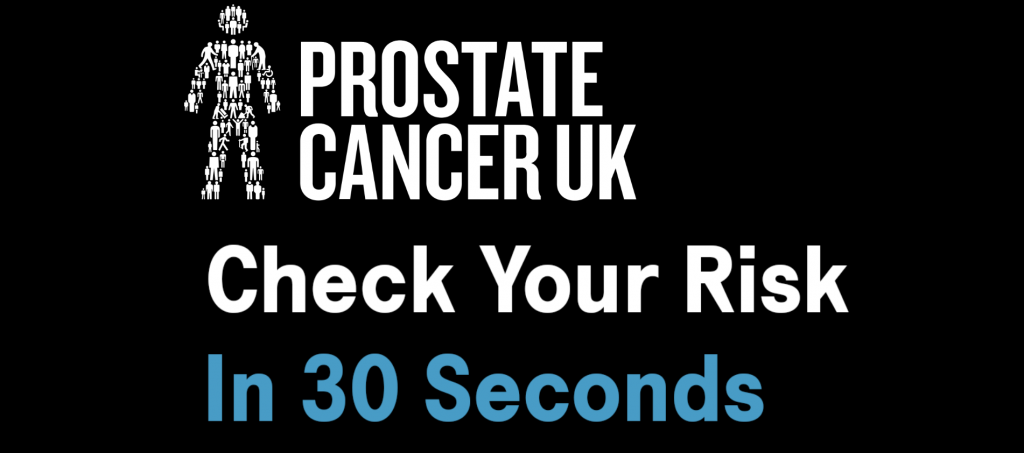Movember: Stopping Men from dying early
On average, men die four and a half years earlier than women.
Life expectancy in the UK is around 79 for men and over 83 for women. One in 5 men die before the age of 65.
The reasons men die younger are often preventable.
Every year, Movember challenges men to grow moustaches through November to raise funds and awareness about men’s health.
Read on for some of the reasons and how to help prevent some of the most common causes of early death in men.
It’s OK to need help.
An interesting thing to note is that men don’t go to their GP practices as often as women.
Even factoring in obvious differences like reproductive health, studies show in some age groups, men consult with their Doctor half as often as women.
The reasons can be complex but worry and potential embarrassment often feature highly when men are asked why they don’t get help.
Consequently, men often have worse health outcomes than women. This is a combination of not getting help early enough and not being able to spot signs of illness in themselves reliably.
Here’s an example: Fewer men than women return the bowel cancer testing kits the NHS send everyone when they turn 60, despite men having a high risk of developing the condition.
So, before getting into Movember’s three main areas of health promotion, it’s essential to address this inequality and encourage men to ask for help when they need it.
Suicide
The reasons are complex, but suicide disproportionately affects men. Three out of 4 suicides in the UK are men.
Across the world, one man dies by suicide every minute of every day.
That’s an incredibly stark statistic.
Movember’s focus is on prevention and early intervention.
The aim is to help men and boys stay mentally healthy by building strong social connections and normalising conversations about all the big things in life, including mental health.
Here are three of Movember’s most powerful resources:
Spot the signs of someone who may be in distress:
- Not sleeping
- Eating more or less than usual
- Forgetting to groom themselves (unclean clothes, not washing or brushing their teeth)
- Avoiding social events
- Going quiet online
- Being more irritable than usual
- Talking about death or hopelessness
Check-in with friends using ALEC, a 4-step approach to ensure people around you are okay.
A – Ask. Start by asking someone how they are feeling, and mention any changes you’ve noticed, like not picking up the phone or replying to texts.
E – Encourage Action. Simple things like getting more sleep, eating better, or exercising can make a big difference, so try encouraging those actions. Sharing how they feel with others can help, too.
L – Listen. Give them your full attention and let them know you’re there to listen without judgment.
C – Check-in. Don’t let it be a one-time thing – follow up and check in again to see how they’re doing. It shows you care and gives you a feel for if they’re better.
Having those conversations can be difficult, especially if we’re not used to it, or we worry about saying the wrong things.
Movember has put together a new tool to help you practice.

Pick a topic – like if a friend has become withdrawn, is struggling with work, getting older or is grieving, and get some expert advice about how to start the conversation with confidence.
You can find more resources for giving or getting support at Movember.com
Prostate Cancer
Prostate cancer is the most common cancer in men over 45.
There are over 52,000 new cases and 12,000 deaths every year. The most common age of diagnosis is between 70 and 74.
You can develop prostate cancer before any symptoms become clear, so understanding your risk is key to early detection.
Risk increases with age, and if you are black or have African ancestry or a family history of prostate cancer, your risk will be higher.
Prostate Cancer UK has a 30-second risk checker that asks three quick questions and tells you what to consider based on your risk level.

Testicular Cancer
Testicular cancer is the most common cancer in younger men, especially those aged 30-34.
Every year in the UK, there are 2,400 new cases of testicular cancer. That’s six every day of the week. And cases have increased by 27% since the 1990s.
The good news is that testicular cancer is highly treatable when caught early, but that depends on people regularly checking themselves – which
Movember says 62% of those most at risk don’t know how to do.
The best advice is to get into a habit of regularly checking for lumps or abnormalities every month or so. That way, you’ll notice when something feels different. This video explains the best way to do it.
